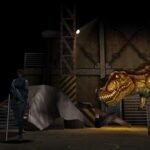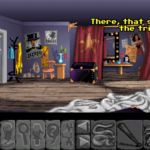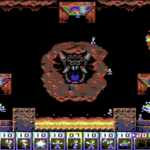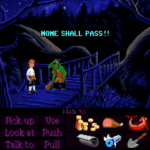Well, here’s a little blast from the past for you, courtesy of the HAMSTER Corporation, the people behind the Arcade Archives.
This time, they’re digging up something truly monumental: Namco’s very first in-house developed arcade game, the brick-breaker with a twist, Gee Bee!
What’s all the buzz about?
If you’re scratching your head wondering what Gee Bee is, I don’t blame you. It came out (appropriately enough) way back in the middle of the disco era, 1978—a pre-Pac-Man world! Namco (now Bandai Namco Entertainment Inc.) developed it, and it was a bit ahead of its time.
Essentially a brick-breaker like Breakout or Arkanoid, the game also has some pinball elements to spice things up — bumpers and things you’d normally find on a flipper table, all mixed into the block-destroying action. All you need to do is bounce the balls to, um keep Stayin’ Alive… (sorry)
This Arcade Archives version even supports the Switch 2’s mouse controls, which should make playing it a bit easier on the old wrists.
Coming to… everything!
The other big takeaway from this press release is that Gee Bee has landed today on a frankly ridiculous number of platforms.
HAMSTER is pulling out the big guns and releasing it simultaneously for five different machines: Nintendo Switch, PlayStation 4, Nintendo Switch 2, PlayStation 5, and Xbox Series X|S.
In case you didn’t know, the Archive Archives was recently split into two ranges:
- Arcade Archives Gee Bee will hit the Switch and PS4 for $7.99.
- Arcade Archives 2 Gee Bee will be for the newer, next-gen consoles (Switch 2, PS5, Series X|S) and will cost a slightly higher $9.99.
But, here’s the nice part: if you grab the older Arcade Archives version first, you can snag the newer Arcade Archives 2 version for just $2.99. A nice little owner’s discount for those sticking with the series across generations.
So, if you fancy owning a piece of arcade history and seeing where Namco’s journey really began, pick this up today from your preferred console store! It’s a genuine classic, and I, for one, am curious to see how those pinball-meets-brick-breaker mechanics hold up.
Learn more on the Arcade Archives website, where you can find direct store links.
Affiliate Disclosure: Some of the links in this post may be affiliate links, which means I may earn a small commission if you make a purchase through those links. This comes at no extra cost to you. Thank you for your support!
Christian Cawley is the founder and editor of GamingRetro.co.uk, a website dedicated to classic and retro gaming. With over 20 years of experience writing for technology and gaming publications, he brings considerable expertise and a lifelong passion for interactive entertainment, particularly games from the 8-bit and 16-bit eras.
Christian has written for leading outlets including TechRadar, Computer Weekly, Linux Format, and MakeUseOf, where he also served as Deputy Editor.
When he’s not exploring vintage consoles or retro PCs, Christian enjoys building with LEGO, playing cigar box guitar, and experimenting in the kitchen.







